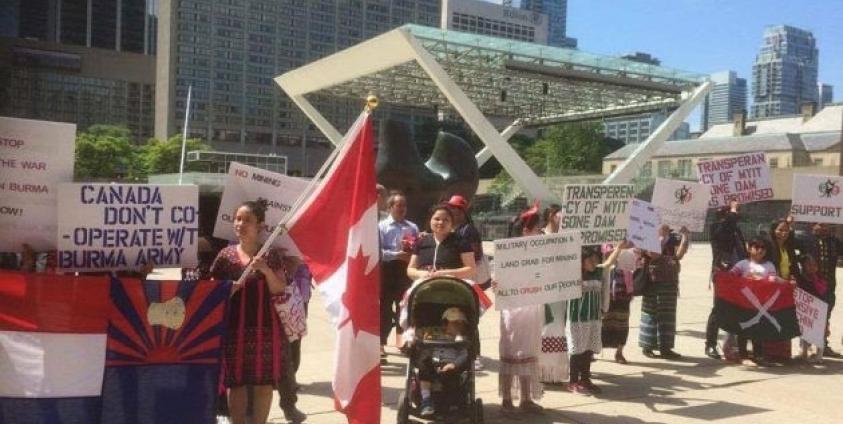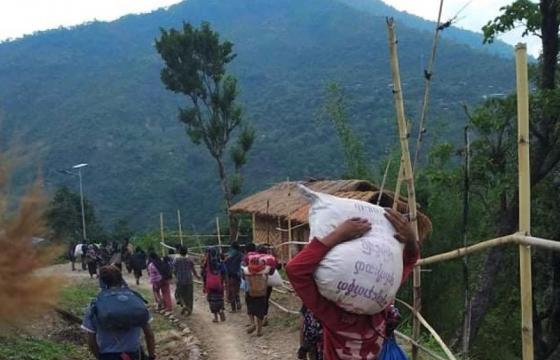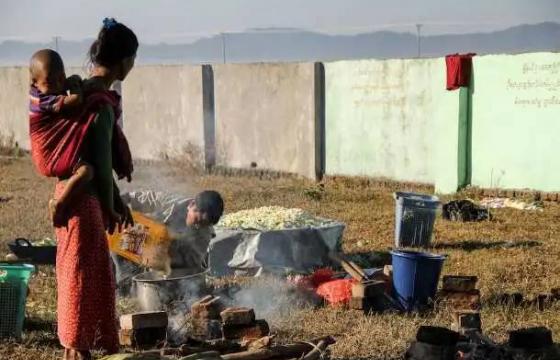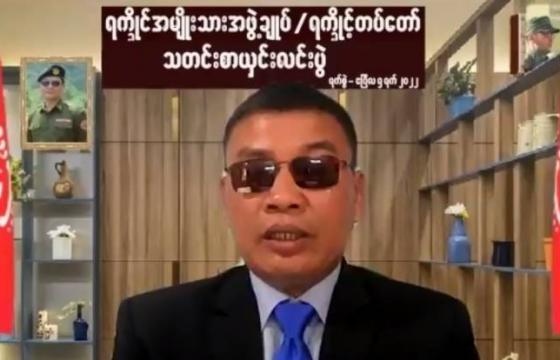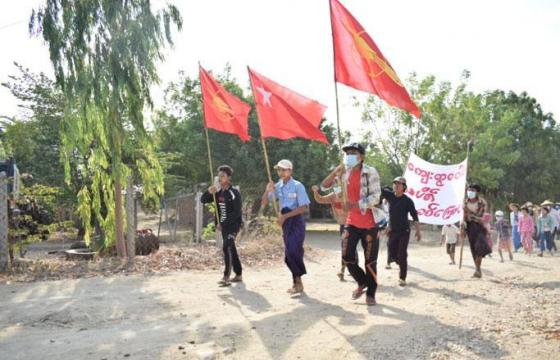Anyone working for social justice in Burma should be disappointed by the mainstream media’s coverage of Aung San Suu Kyi’s visit to Canada last week. Given ongoing military abuses throughout Burma’s ethnic regions, it was frustrating to see headlines focusing again and again that Canada must press Aung San Suu Kyi regarding her government’s brutal treatment of Rohingya Muslim communities in Rakhine State, while ignoring the plight of other ethnic peoples in Burma.
Never once during the week was there any mention of the ongoing war in Kachin State that has displaced as many as a 100,000. On June 9, the day that Aung San Suu Kyi attended a Burmese community event at Toronto City Hall, was the sixth anniversary of the resumption of the Kachin war. However, the only Canadian media coverage of the event, an article in the Toronto Star, was silent on this issue. There was also no discussion of ongoing military occupation in ceasefire zones such as Karen State, where thousands of displaced villagers staged demonstrations last month.
In short, media coverage gave the Burmese military a free ride, while focusing all criticisms on Aung San Suu Kyi’s government’s treatment of the Rohingya.
The focus on Rohingya suffering is understandable, and we are certainly not arguing that this coverage should stop. To the contrary, it needs to be set in the context of historical and ongoing patterns of Burmese military abuses. Singularly focusing on the Rohingya does not do justice to the suffering of other non-Burman ethnic peoples in the country. It also creates the simplistic notion that if only the government would uphold human rights of Rohingya, Burma’s problems would be solved. However, Burmese military oppression is systemic in nature and permeates all of the military’s dealings with non-Burman ethnic communities.
Simplistic media portrayals of the situation in Burma are very troubling when we consider international development assistance to the central government. If international donors like Canada do not understand the complex situation in Burma, they risk subsidizing the Burmese government’s continuing efforts to oppress and control the ethnic peoples. Our Karen community in Canada is very concerned with recent funding announcements by the Canadian government totaling CAD $28.8 million. We are worried that this funding will be distributed through central Burmese government channels, marginalizing ethnic civil society that continues to be a much-needed lifeline for conflict-affected communities.
The following case illustrates the impact of ongoing media marginalization of our Karen community in Canada.
On June 9, our Karen community staged a demonstration in front of Toronto City Hall, while Aung San Suu Kyi attended an event with the Burmese community inside. Kachin and Rohingya communities staged concurrent protests. Our protest groups were gathered in the same area, all with strong messages condemning ongoing war, militarization, and human rights abuses in Burma. It was a perfect opportunity for Canadian news media to become more informed about the human rights situation in Burma. However, the resulting Toronto Star article only contained passing reference to the Rohingya protest, completely ignoring the Kachin and Karen demonstrations.
The Irrawaddy article covering our Karen demonstration made the opposite mistake, including reference to the Kachin protest nearby, but never mentioning the demonstration by our Rohingya brothers and sisters.
Media narratives that narrowly focus on single issues can be used to divides us and undermine our common struggle for justice. Following the demonstration, racist elements in the Burmese-Canadian community began attacking the Rohingya online. One of these attackers referenced incomplete coverage in both the Toronto Star and the Irrawaddy to bolster his attacks, taking to social media to claim that our Karen and Kachin protestors “keep a distance” from the Rohingya.
This is patently untrue. In fact, we collaborated with our Rohingya counterparts in organizing our joint events. Although there were times when our demonstrations diverged, we stood in solidarity together against the same oppressors – the Burmese military. We also agreed to work together more closely with our Rohingya brothers and sisters in the future, and to combat racist and Islamophobic attitudes that persist among some in the overseas Burmese community. There is no room for racism or discrimination in our movement.
The mainstream media’s singular focus on the Rohingya issue is unhelpful, as it overlooks ongoing suffering of other ethnic peoples under the same military oppression. There is a need for more informed media reporting on Burma issues to demonstrate that the plight of Rohingya and other ethnic nationalities in Burma are all part of the same root problem – denial of basic human rights and equal right to life for all ethnic peoples in Burma. This realization should build more unity in our resistance, for only in unity will we have the strength to prevail.
Saw Lay Khu Wah is an informed Karen Community member in Canada. He can be reached at [email protected].

